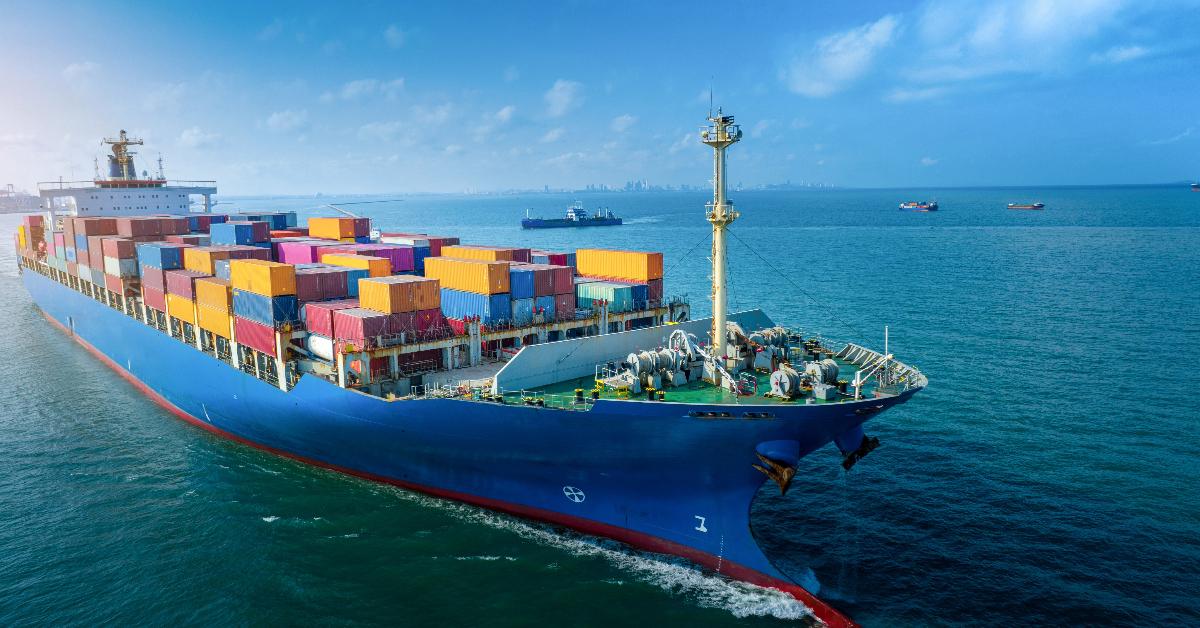
People cavil much about Ricardo’s law of association, better known under the name law of comparative cost. The reason is obvious. This law is an offense to all those eager to justify protection and national economic isolation from any point of view other than the selfish interests of some producers or the issues of war-preparedness.
—Ludwig von Mises, Human Action
Alexander Macris of the Substack blog Contemplations on the Tree of Woe has called attention to Ian Fletcher’s arguments against free trade in the little-known book Free Trade Doesn’t Work: What Should Replace It and Why. Repudiating his youth as a “doctrinaire free trader” under the sway of “Austrian economics,” when he considered free trade to be “more than just an economic belief,” Macris has left behind his youthful naïveté and embraced Fletcher’s criticisms of several theoretical assumptions made by Ricardo that render questionable the relevance of Ricardo’s discovery for real-world government policy decisions.
Macris follows Fletcher in framing the arguments against free trade doctrine specifically against the prevailing mathematical economics orthodoxy. However, as a self-described student of Austrian economics, Macris should be aware of Ludwig von Mises’s generalization of Ricardian comparative advantage in Human Action, which either eludes many of the criticisms put forth by Fletcher or renders them irrelevant within the scope of economic science.
It would be an overly ambitious task to correct all misunderstandings or clarify how many of their criticisms apply narrowly to mathematical economics, but for the sake of this article, it must suffice to show that properly understanding the scope and implications of the Misesian law of association sheds light on what precisely is (and is not) the economic case for free trade, allowing us to at least distinguish economic considerations from political considerations.
Mises and the Law of Association
Mises situates his discussion of the Ricardian “law of comparative cost,” or the “law of association” in Mises’s terminology, in part 2 of Human Action. In just over five pages, Mises describes and defends the fact that specialization and exchange are more physically productive than isolated action, resulting in mutual gains to all who participate in the division of labor even when one individual or group of individuals is productively superior in every conceivable line of production. Thus, Mises recognizes society itself to be “concerted action,” or put more technically, “division of labor and combination of labor.”
Mises brilliantly draws attention to the fact that if it were not true that all can benefit by participation in specialization and exchange, then society itself would hardly be possible to any meaningful extent, as there would be no selective advantage to engaging in cooperation rather than violence. It is because the Ricardian notion of comparative advantage is true, understood more broadly by Mises to apply universally outside the confines of Ricardo’s particular model, that human societies ever had the chance to develop at all.
Recognizing the universal truth of the law of association does not prescribe particular actions. We know through economic reasoning that partaking in the extended division of labor according to relative efficiency is beneficial to all participants, given the existence of inequalities in human ability and nonhuman factors of production, but this analytical fact tells us little about what concrete lines of production each person should specialize in within their lifetimes or where the best opportunities are located. Whether a business unit is in fact specializing according to comparative advantage at any given time is a matter of entrepreneurial judgement and cannot be empirically identified the same way we can work through the logic of comparative advantage on the blackboard.
Knowledge of economic laws also does not require the necessity to maximize physical productivity of goods above all other considerations. The teachings of economic science simply help us to understand, at least in a qualitative sense, what we are giving up by pursuing alternative goals, such as a national industrial policy that restricts the voluntary business decisions of entrepreneurs in support of a domestic industry that would not have otherwise been profitable enough to attract investment expenditure.
Fletcher and Macris err when they believe they must take aim at Ricardian comparative advantage to make a case for trade restrictions. They simply must state their goals and admit their willingness to support coercion to achieve them, which takes us outside the realm of economic theory and into politics.
Economics versus Politics
Fletcher and Macris focus their attention entirely on the “nation” as the unit of analysis. Fletcher’s book is filled with references to how the “nation” acquires skills, the “nation” grows, the “nation” specializes, certain industries have “value to the national economy,” and so on. Rarely mentioned are the individual entrepreneurs who actually make the decisions to pursue certain lines of production instead of others. As a student of Austrian economics, Macris should know that the “nation” is not the relevant unit of analysis when it comes to understanding the mutually beneficial nature of exchange.
You can certainly draw lines around geographical regions and then claim a “nation” specializes in certain lines of production. However, fixing attention on such a “nation” is a political matter, not a matter of economic theory. While Ricardo himself refers to nations in his original exposition of comparative advantage, Mises’s clarification of the law of association makes clear that the logic applies universally to any exchange. Since nations do not engage in exchange as a singular unit, confusion results when critics of free trade attempt to rebut Ricardian logic on the basis that it is possible for a geographical region to be comparatively poorer following an opening to trade.
If labor and capital are mobile to any extent, it is possible that the land or productive opportunities in certain regions are deemed inferior to alternative feasible opportunities abroad. Migration or foreign investment may then leave one region relatively unoccupied and poorer than would have been the case absent free movement of labor and capital. One may bemoan this situation, but there is nothing that can be done unless one is willing to forcibly prevent individuals from physically moving or from investing their capital abroad according to what they deem their most preferred opportunities.
It is irrelevant from an economic viewpoint whether critics of free trade seek ends they believe can only be achieved through industrial policy or care about individuals being free to make their own decisions about which lines of production and exchanges to pursue. However, it would be refreshing if such value judgements were openly expressed.
Who Decides: Entrepreneurs or Bureaucrats?
Since we have left the realm of a priori economic theory, a relevant question is who should decide what a person or group will specialize in during any time range: entrepreneurs or government planners? Fletcher blames free trade for many aspects of modernity that he finds alarming, ignoring the effects of central banking, particularly in the United States, where global reserve currency status and demand for dollars has contributed to both the large current account deficit and rising inequality as early receivers of the new money benefit at the expense of everyone else.
Fletcher then asserts that government intervention can fix many of the problems. For example, he claims that path dependencies produce lockout effects, in which a potentially more efficient producer of a good can never capture potential market share. Fletcher’s “solution” is a “rational industrial policy” with a flat tariff of 30 percent, but he fails to explain how that ensures that more efficient lines of production aren’t overlooked. In fact, such a “rational industrial policy” would likely push domestic producers toward even less efficient lines of production than in the baseline case of free trade.
Both Fletcher and Macris impute to “Ricardians” the bizarre policy advice of specialization according to short-term comparative advantage at the expense of long-term comparative advantage, even when nonrenewable resources might be depleted or highly advanced industries may be forsaken due to insufficient investment. They leave unexplained why they presume that government planners are more capable than entrepreneurs at identifying future profit opportunities or carefully utilizing nonrenewable resources.
Fletcher and Marcis offer no comparative analysis of the nature and quality of production decisions undertaken by political planners versus private entrepreneurs. Trade restrictions are presented as deus ex machina to correct perceived failures of free trade. Meanwhile, the careful planning of entrepreneurs, who put their own capital on the line to satisfy customers and thereby earn profit, is ignored. Their plans and aspirations, no doubt, are deemed less important than the needs of “the nation.”
Conclusion
Ultimately, disputes about free trade take place in the realms of politics and ethics, not economics. If US consumers prefer to import goods or entrepreneurs prefer to organize production abroad, those advocating protectionism should admit that they advocate stifling voluntary exchanges via state-sponsored coercion to pursue goals they deem more important.
Although one can construct examples where an industry would not exist absent government intervention, one cannot observe counterfactuals to know if that absence would be preferable to what already exists. Since one cannot aggregate preferences, claims that certain policies are “better” for a nation have no economic basis and merely reflect the personal value judgements of those promoting government intervention.
This is not an overall criticism of Macris, whose blog usually is worth reading. However, the post being discussed is part of a genre in which “new right” authors repudiate their libertarian heritage to address what they claim to be the culturally insensitive and intellectually limited scope of Austrian economics.
However, Austrian school economists seek causal laws of human action, which are separate from consideration of what one should value. “Austrians” are found on all sides of modern political and cultural issues and may disagree on certain points.
The law of association declares that bureaucratic restrictions on the division of labor in pursuit of other goals reduce productivity. However, human society itself is only possible to any meaningful extent if the law of association holds true. There is no middle ground.






